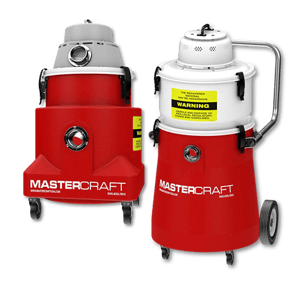Keeping healthcare facilities and hospitals clean and sanitized is crucial to maintaining a healthy environment for both patients and healthcare workers. Effective cleaning equipment plays an important role in preventing the spread of infections and diseases within a hospital setting.
In this article, we will discuss the top cleaning equipment that hospitals should invest in for efficient and thorough cleaning.
The Importance of Maintaining A Healthy Environment
Maintaining a clean and hygienic environment in hospitals is essential to health care for a couple of major reasons:
- Preventing the spread of infections: Due to the presence of sick patients and germs, hospitals are a breeding ground for infectious diseases. Proper hospital cleaning procedures can prevent the transmission of these diseases from one patient to another.
- Protecting healthcare workers: Hospital staff are constantly exposed to germs and bacteria, making them vulnerable to infections. By keeping the hospital environment clean, we can protect our healthcare workers from falling ill and ensure their well-being.
If a hospital is not cleaned properly, it can lead to the spread of infections and put both patients and staff at risk. This is why investing in the right cleaning equipment is crucial for maintaining a healthy environment in hospitals.

Why Use Specialized Cleaning Equipment for Hospitals?
Due to the presence of highly infectious microorganisms, regular cleaning methods may not be sufficient in hospitals. Specialized cleaning equipment, on the other hand, is designed to effectively remove these harmful germs and bacteria from medical facilities.
Moreover, using specialized equipment can also save time and effort because it is specifically designed for hospital cleaning tasks. This ensures a thorough and efficient cleaning process that meets hospital cleaning guidelines.
What Should I Consider When Buying Equipment?
When selecting cleaning equipment for hospitals, there are a few important factors to keep in mind:
- Portability: Hospitals have a large area to cover, so it is crucial to have equipment that is lightweight and easy to move around.
- Multi-functionality: Look for equipment that can perform multiple tasks, such as vacuuming, mopping, and disinfecting. This will save time and space in storage.
- Efficiency: The equipment should be efficient in both cleaning and disinfecting to meet industry standards and keep the hospital environment safe for all.
- Durability: Hospital cleaning is a rigorous task, so it's important to choose durable equipment that can withstand frequent use.
- Compatibility with disinfectants: Some cleaning equipment may not work well with certain types of disinfectants, so make sure to
- Effectiveness: The equipment should be able to effectively remove dirt, bacteria, and other contaminants.
- Time-efficiency: Hospitals are always busy, so the cleaning equipment should be able to save time and help complete tasks quickly.
- Cost-effectiveness: Investing in high-quality and durable equipment can save hospitals money in the long run by reducing the frequency of replacement or repairs.

Best Cleaning Equipment For Hospitals
1. Disinfecting Wipes and Sprays
Disinfecting wipes and sprays are versatile, easy to use, and effective in killing germs on various surfaces. They are particularly useful for high-touch areas such as doorknobs, countertops, medical equipment, and patient rooms.
Upright vacuum cleaners are essential cleaning equipment for hospitals, as they can effectively remove dirt, dust, and other contaminants from floors and carpets. They also come with attachments for cleaning hard-to-reach areas and upholstery.
3. Steam Cleaners
Steam cleaners use the power of heat to disinfect and clean surfaces without the need for harsh chemicals. They are ideal for cleaning and sanitizing bathrooms and floors, and they can even be used on medical equipment.
4. Floor Scrubbers
Floor scrubbers are designed to clean large areas quickly and efficiently without the need for manual labor. They are perfect for use in hospitals with high-traffic areas, such as hallways, waiting rooms, and patient rooms.
HEPA vacuum cleaners use high-efficiency filters to trap small particles, including bacteria and viruses. They are ideal for cleaning areas that require the highest level of sanitation, such as operating rooms and isolation units.
What Is the Difference Between HEPA Vacuums and Regular Vacuums?
HEPA vacuums are equipped with filters that can trap particles as small as 0.3 microns, whereas regular vacuums can only capture larger particles. This means that HEPA vacuums are more effective in removing harmful particles that can cause infection.
5. Carpet Extractors
Carpet extractors are designed to deep-clean and sanitize carpets, removing tough stains and odors. They are an important piece of equipment in hospitals because they can effectively remove bacteria, dust mites, and other allergens from carpeted areas.

Cleaning High-touch Surfaces and High-traffic Areas
With so many patients and visitors coming in and out of a healthcare facility every day, it's important that the environment is kept clean and free from any potential hazards.
The best way to achieve this is by creating a cleaning schedule that covers all high-touch surfaces and high-traffic areas regularly.
This not only ensures that the hospital is free from germs and bacteria but also creates a healthy environment for both patients and staff.
Identifying High-Touch Surfaces
High-touch surfaces are areas in a hospital setting that are frequently touched by multiple people, which makes them prone to contamination. Some examples include doorknobs, light switches, elevator buttons, and handrails. These surfaces should be cleaned and disinfected multiple times a day to prevent the spread of germs.
Cleaning Procedures for High-Touch Surfaces
When cleaning high-touch surfaces, it's important to use the right equipment and cleaning agents. Hospital-grade disinfectants should be used to effectively kill any bacteria or viruses that may be present on environmental surfaces.
Microfiber cloths are also recommended, as they are better at trapping germs and can easily be washed and reused.
High Traffic Areas
Aside from high-touch surfaces, high-traffic areas in hospitals should also be included in the cleaning schedule. These are areas where people gather or pass through frequently, such as waiting rooms, hallways, and bathrooms.
These areas should also be cleaned and disinfected multiple times a day to prevent the spread of germs. It's important to pay attention to details, such as wiping down chairs and tables in waiting rooms, as well as disinfecting handles and faucets in bathrooms.
Equipment for High-Traffic Areas
As mentioned earlier, floor scrubbers are an effective and efficient option for cleaning high-traffic areas, as they can cover a large area quickly. It's also important to have enough disinfecting wipes and sprays on hand to regularly clean surfaces in these areas.

Regular Cleaning Schedules
Having a regular cleaning schedule not only ensures that the hospital is kept clean, but it also reduces the risk of infections and illnesses. In addition, it promotes a healthy environment for both patients and staff.
Plus, having a set schedule makes it easier to keep track of when certain areas were last cleaned while allowing for proper rotation of cleaning tasks to prevent burnout among staff.
Maintenance Matters
To ensure the effectiveness of cleaning equipment, it is important to maintain and clean them regularly. This includes replacing filters, emptying and sanitizing the tanks, and following the manufacturer's instructions for maintenance.
Moreover, you should provide your staff members with proper training on how to use and maintain the equipment correctly. This will not only ensure its longevity but may also guarantee a safe and hygienic cleaning process.
FAQs
Q: How often should hospitals be cleaned?
A: Hospitals should be cleaned daily, with high-touch and high-traffic areas being disinfected multiple times throughout the day.
Q: Which cleaning equipment is best for hospital bathrooms?
A: Steam cleaners are effective in cleaning and disinfecting hospital rooms and bathrooms without the need for harsh chemicals.
Q: Are there any eco-friendly options for cleaning equipment in hospitals?
A: Yes, there are eco-friendly options (such as steam cleaners and microfiber cleaning cloths) that use less water and chemicals, making them environmentally friendly alternatives to traditional cleaning equipment.
Q: How often should hospitals be cleaned?
A: Hospitals should be cleaned and disinfected regularly, especially high-touch areas such as doorknobs, counters, and medical equipment.
Q: What is the best way to disinfect surfaces in hospitals?
A: The most effective way to disinfect surfaces in hospitals is by using specialized cleaning products and equipment, such as disinfecting wipes and sprays, steam cleaners, and HEPA vacuum cleaners. These equipment items are designed to effectively remove germs and bacteria from surfaces.
When working with disinfectant products, be sure to wear the correct personal protective equipment (PPE), as many products that hospital cleaners are required to use are stronger than your average household cleaner.

Conclusion
Maintaining a clean and hygienic environment in hospitals is crucial for the health and safety of patients and healthcare workers alike. By investing in specialized cleaning equipment, hospitals can ensure that their premises are thoroughly cleaned and sanitized according to industry standards.
From disinfecting wipes to HEPA vacuum cleaners, there are various options available that cater to the specific needs of hospitals. With proper cleaning equipment and procedures in place, hospitals can prevent the spread of infections and diseases, creating a healthier environment for everyone.
For all these reasons, it is important for hospitals to carefully consider their cleaning equipment choices and invest in the best tools for the job. Remember, a clean hospital is a healthy hospital.
1 Comment